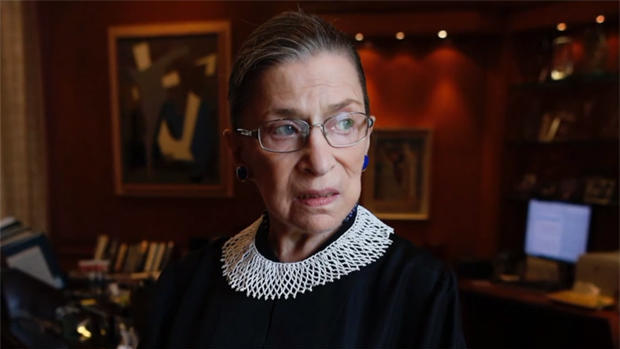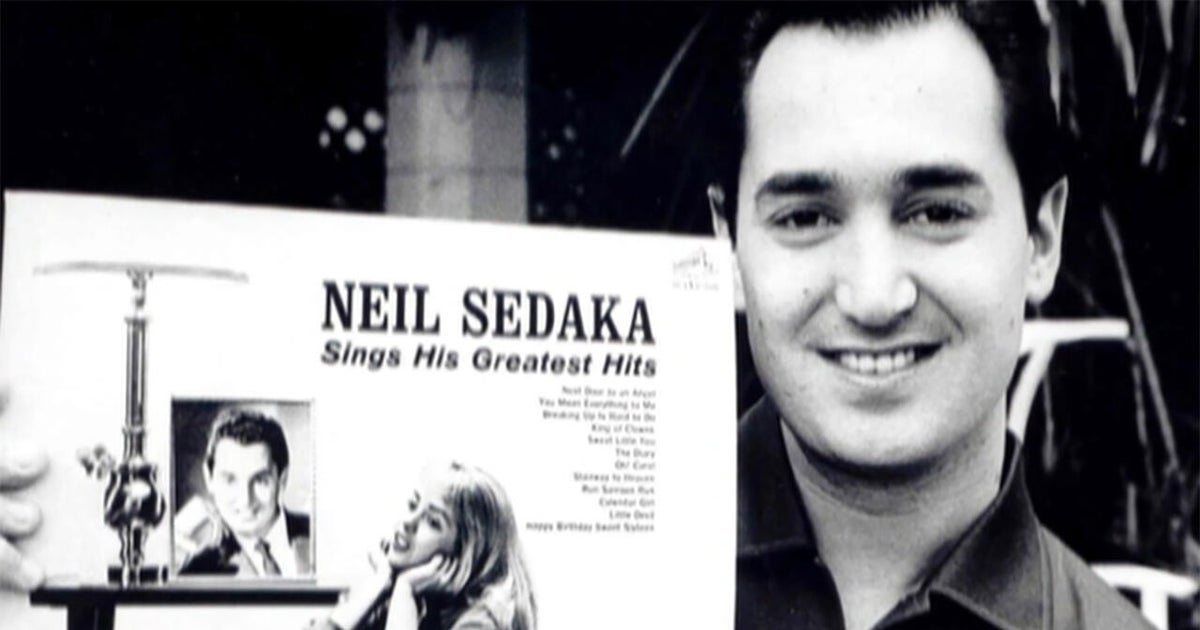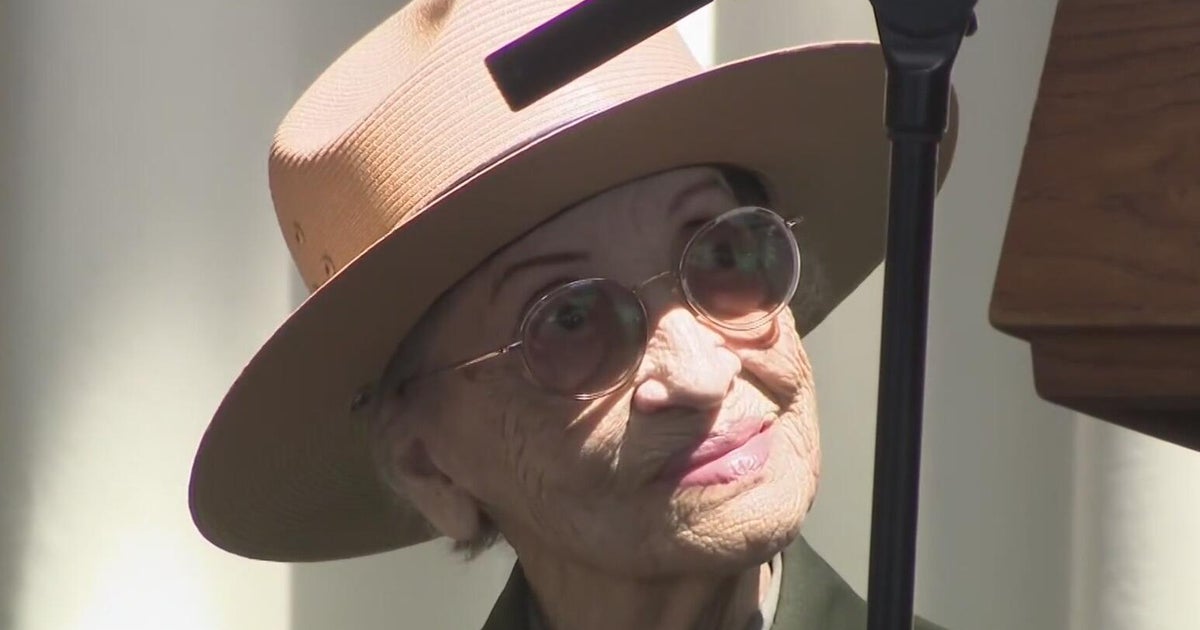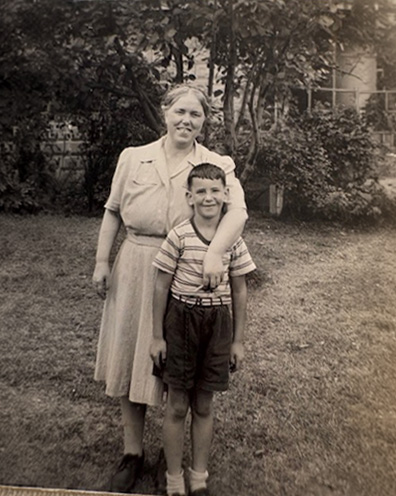Hail and farewell to those we lost in 2020
"Sunday Morning" pays tribute to the creative, inspiring and newsworthy men and women who passed away this year, who'd touched our lives in unforgettable ways. Lee Cowan reports:
"Sometimes, in our lives,
we all have pain,
we all have sorrow..."
Pain and sorrow – the calling cards of 2020. "Lean on Me" by Bill Withers provided us reassurance that tomorrow may be better. Although Withers left us at 81, his notes of solace helped during a year that wasn't even a month old before grief was already setting in.
The death of 41-year-old Kobe Bryant, the L.A. Lakers phenom, along with his 13-year-old daughter and seven others, stunned everyone – basketball fans or not.
His passing became a moment of rare unity this year, with people from all walks of life joining together to both celebrate and to mourn.
Michael Jordan said, "Kobe was my dear friend. He was like a little brother."
- Kobe Bryant, an NBA star who transcended sports, remembered around the world
- Gallery: Kobe Bryant dead at 41: A life in pictures
"My momma always said life was like a box of chocolates. You never know what you're going to get"
COVID was certainly the box we all wished we never got. But Winston Groom, who created Forrest Gump, reminded us through that character that challenges exist, to be overcome.
"Let me say this: Being an idiot is no box of chocolates, 'cause I reckon I done live a pretty interesting life," Groom said. "You don't have to be rich, and you don't have to be smart. You don't have to be famous to be dignified."
Dignity for Black Americans remained an unfinished struggle this year. The deaths of George Floyd, Ahmaud Arbery and Breonna Taylor — just to name a few — rekindled a movement for equality and justice not seen since the 1960s.
Congressman John Lewis was still fighting right to the end. "I got in trouble, good trouble. Necessary trouble," he said. "All of the suffering, all of the pain, the beating, the tear gas, it was worth it. If I had it to do all over again, I would march the same way."
After his brother, Medgar, was assassinated by White supremacists in 1963, Charles Evers tried to make change from within – running for Congress, then becoming a mayor. "Not for revenge, but to carry on, to fight for freedom for all mankind regardless of race, creed or color," he said.
We lost those who marched alongside Dr. Martin Luther King Jr., too: Reverends C.T. Vivian and Joseph Lowery.
Rev. Lowery gave the benediction at President Obama's inauguration: "We ask you to help us work for that day when Black will not be asked to 'get back.' When Brown can stick around, when Yellow will be mellow, when the Red man can get ahead, man. And the White will embrace what is right. Say amen, and amen!"
Rafer Johnson, who was the first Black American to captain a U.S. Olympic team in 1960, left us this year. His triumphant win in the decathlon is still talked about to this day.
Rock 'n' roll certainly wasn't immune to racism. "When I came on the scene, Black and White was segregated in dances and shows," said Little Richard. He couldn't always stay or eat where the White performers did, but his fans were of all colors. His energy was boundless, and so was his humor. At the 1988 Grammy Awards he announced a winner: "And the Best New Artist is ... me! I have never received nothing! Y'all ain't ever give me no Grammy and I been singing for years!"
- Little Richard: An appreciation of the "Quasar of Rock 'n' Roll" ("Sunday Morning")
The Black Americans we celebrate like Jackie Robinson, James Brown and Thurgood Marshall surely would have been proud of Chadwick Boseman, who portrayed them all. "That's the reason why you act," Boseman said in 2013. "You want to be able to actually identify with the characters that you play and explore humanity."
I am woman, hear me roar
In numbers too big to ignore
And I know too much to go back and pretend
'Cause I've heard it all before
And I've been down there on the floor
No one's ever gonna keep me down again
Gender equality lost some of its superheroes, too. Helen Reddy offered the soundtrack for the fight that she herself waged.
But there were few champions for women as influential as Justice Ruth Bader Ginsburg. "I do not see myself at all as a legend; I see myself as a person who tries very hard to be a good judge," Ginsburg said.
In her 27 years on the Supreme Court, she expanded rights for women as well as men. Small in stature, a giant for us all.
"I will do this job as long as I feel that I could do it, full steam," she said.
The only thing tougher than Justice Ginsberg was the cancer that took her at age 87.
The fight for equality took all forms. "For all minorities, for all people, it's just a never-ending battle to fight against the powers-that-be, to prove our worth and our place," said AIDS activist and playwright Larry Kramer.
He was often brash, but effective. Talking about the AIDS epidemic in 1982, Kramer told a reporter, "Most of the country doesn't know about this cancer."
Why? "Well, I think because it's a 'gay cancer.'"
Kramer fought tirelessly, pressing the government and the public to care more about the gay community – much the way playwright Mart Crowley did. "Homosexuality was just not talked about," Crowley said.
It took him 50 years to see his portrayal of gay life, "The Boys in the Band," finally make it to Broadway. "It's just generally about the human spirit. Suddenly they're not just gay people, they're just people."
- Playwright Mart Crowley on the revolutionary "The Boys in the Band" ("Sunday Morning")
Few wrote that storyline better than playwright Terrence McNally, whose tales of love of all kinds won him five Tony Awards, including one for Lifetime Achievement.
- From 1995: Terrence McNally, Zoe Caldwell on "Master Class" ("Sunday Morning")
Broadway has been dark for months now, but we pause to give thanks to all the creatives we lost, who lit up our world this year nonetheless:
Ann Reinking ("Chicago")
Nick Cordero ("Bullets Over Broadway")
Zoe Caldwell ("Master Class")
Brian Dennehy ("Death of a Salesman")
- From 2007: Brian Dennehy on the best part of acting ("Sunday Morning")
Rebecca Luker ("The Music Man")
Performers couldn't play in front of live audiences this year, and that made us miss their talents all the more … especially legends like folk singer John Prine.
When I get to Heaven,
I'm going to shake God's hand.
I'm going to thank him for more blessings
than one man can stand"
With his nasal, raspy voice, he was often compared to Bob Dylan, who himself was a fan. "Well, I considered myself a writer," Prine said, "so I thought, why can't I be any character I want to be?"
- John Prine, the "Singing Mailman," delivers again ("Sunday Morning")
- John Prine: At home with the songwriting legend
In whatever genre, country or pop, the bourbon-smooth voice of Kenny Rogers brought us ballads about gamblers, and lost souls searching for love. "I'm not a great singer," Rogers said in 2006, "but I'm a storyteller. If a song moves me, I can make it move other people."
- Kenny Rogers thinking about the future ("Sunday Morning")
Country music was largely an all-White venue, until Charley Pride ("Kiss an Angel Good Morning") came along. His records were huge sellers, and he'd just won a Country Music Association Lifetime Achievement Award.
His music nourished our soul the way a good meal nourishes the body ... and few were better at that than Cecilia Chiang. Often called the Mother of Chinese food in America, her cooking must have been pretty healthy, because she lived to be 100.
- Cecilia Chiang, the mother of Chinese food in America ("Sunday Morning")
Slim Jims weren't necessarily healthy — Lon Adams didn't intend for them to be — but he sure knew how to package them in ways pretty hard to forget.
The artist Christo took presentation to new heights. He saw all the world as a package to be wrapped.
- Passage: Remembering Christo ("Sunday Morning")
- Gallery: The art of Christo (1935-2020)
- Christo takes Manhattan ("60 Minutes")
But if you're going to dress up a landmark, nothing summed up a whole city better than Milton Glaser's "I ♥ NY" logo. It actually changed the way we say love. He died on his 91st birthday.
- Passage: Graphic designer Milton Glaser, creator of the "I ♥ NY" logo ("Sunday Morning")
We lost a bit of magic, too, this year, starting with showman Roy Horn – half of the Siegfried and Roy duo – whose entertaining mix of magic and exotic animals dazzled the Las Vegas Strip for decades. "We have been called crazy, outrageous; now they call us colorful and eccentric!" he said.
Ms. Frizzle was certainly "colorful and eccentric"; she was the fictional teacher who drove The Magic School Bus to the delight of every child who read it. Her creator, author Joanna Cole, used her brand of magic to take kids to space – and even inside the human body.
"OK, so this is the experimental test setup for the myth that if you drink a bunch of Diet Coke and eat a bunch of mentos, your stomach will explode," explained Grant Imahara, one of the hosts of Discovery's "Mythbusters." He proved that science can answer all sorts of mysteries, like how to get to the moon.
NASA's Katherine Johnson figured that out, calculating just the right trajectory that got astronauts there and back, including Alfred Worden, one of those who certainly had all the "right stuff."
But it was test pilot Chuck Yeager who defined just what that meant, becoming the first man to break the sound barrier. He made testing the limits his life. "I figured that the airplane wouldn't bite me without giving me some sort of warning, and it worked out," he said.
The World War II fighter ace and Air Force general was 97.
Speaking of the sound barrier ... few cracked it like rocker Eddie Van Halen. He was a true guitar hero. He died from cancer at only 65.
We lost Rush drummer Neil Peart to cancer as well. He was, to some, the Van Halen of the drums – his highly technical solos were really a thing to behold.
Years before Pert, however, there was Viola Smith, hailed as the fastest girl drummer in the world. She played her drum kit wearing sequins.
But when it came to percussion, Ian Finkel says he stood alone. He was the world's greatest xylophonist, he said, because he was one of the few left — until COVID took him at age 72.
COVID also took Ellis Marsalis, the great jazz pianist who gave us a whole family of musicians, including Wynton Marsalis, the musician behind our theme song every Sunday morning.
- From 2004: The Marsalis family's musical legacy ("Sunday Morning")
If there was ever a year we needed a laugh, this one was certainly it. One of the greats could even make the morbid funny. "First thing in the morning before I have coffee, I read the obits. Yes, if I'm not in it, I'll have breakfast," Carl Reiner told "Sunday Morning" in 2015.
Reiner was a comedian in his own right, but he made other people funny, too, as a writer, producer and director.
- Carl Reiner: Still making us laugh ("Sunday Morning")
- Golden Boys ("Sunday Morning")
There's funny, and then there's the absurd. ["Spam Spam Spam Spam Spam Lovely Spam Spam"]. Terry Jones, co-founder of Monty Python's Flying Circus, took his irreverent brand of humor to side-splitting extremes.
"How are we today?"
"Better …"
"Better?"
"Better get a bucket, I'm going to throw up!"
Contrast that with the gentleness of Walt Disney's entertainment. But when it came to Snow White, he couldn't have done it without Marge Champion. "Everything she does with her hands, or dances or picking up her dress, that's me," she said.
She was the dancer they used to draw those graceful moves. Snow White looked so real, because she was.
We lost the creators of Scooby-Doo, too – both of them within months of each other. Joe Ruby and Ken Spears envisioned a gang of teenagers and an ever-hungry Great Dane teaming up to solve ghostly mysteries.
"I guess I could say there's good trash and there's bad trash. Bad trash are just shows that aren't well-executed," said Fred Silverman. "Scooby-Doo" was commissioned by Silverman, a top executive at CBS, as well as ABC, and NBC. He was one of the most powerful people in the industry – also behind hits like "All in the Family" and "Laverne and Shirley" … which lost one of its stars, too, this year.
David Lander, best known as Squiggy, left us at 73.
To all those who gave us plenty to watch, we bid a fond TV farewell:
Kellye Nakahara ("MASH")
Naya Rivera ("Glee")
James Drury ("The Virginian")
Sam Lloyd ("Scrubs")
James Lipton ("Inside the Actor's Studio")
Ken Osmond ("Leave It to Beaver")
Conchata Ferrell ("Two-and-a-Half Men")
David Schramm ("Wings")
The holidays are tough without the ones we love – unless, that is, you celebrate Festivus: "You gather your family around, and tell them all the ways they have disappointed you over the past year!"
At 92, "Seinfeld" star Jerry Stiller, the father of actor Ben Stiller, is celebrating his invented holiday somewhere else this year.
For 37 years, Alex Trebek gave us the answers to questions yet posed as the unflappable host of "Jeopardy!" "It's the perfect television presentation of the great American Dream," he said.
He was a fixture in our living rooms. His cancer, however, left us all asking why him – and why so soon.
"Sounds impressive: I've got stage 4 cancer, not stage 1 for sissies. That's just beginner's cancer, I've got advanced!" he told Jane Pauley last year.
"Why are you making me laugh?" she asked.
"Well, what else are we going to do?"
But when it came to naming the most versatile TV personality, the "Jeopardy!" answer would have to be "Who is Regis Philbin?" He could do anything, with anyone, no matter the audience. He was everywhere on TV, logging thousands of hours of airtime. Everyone knew him simply as "Regis."
"Some people like a little anonymity in their lives, but it's very hard to do when you're on every day," he said.
- From 2005: The iconic Regis Philbin ("Sunday Morning")
Like "Regis," another single name defined for generations just what it means to be both dangerous and suave: "Bond. James Bond." Sean Connery set the standard for all the 007s who would follow.
- Passage: Remembering Sean Connery ("Sunday Morning")
But the life of a real British spy is something a little less glamorous. Author John le Carré should know, because, well, he was one. "With the Bond type of novel, the reader thinks, 'I wish I was him.' With the stuff I'm writing, they think, 'Oh Christ, I hope I'm not him!'" he laughed.
He turned his career experiences into a host of spy thrillers.
- From 2019: In conversation with John le Carré ("Sunday Morning")
- From 1996: The secret world of John le Carré ("Sunday Morning")
But le Carré's heroes weren't always flanked by Bond-type beauties. Margaret Nolan, who gave us the world-famous "Goldfinger" image, passed away at 76.
So did her fellow actress in "Goldfinger," Honor Blackman.
But it was Dame Diana Rigg who captivated the secret agent so much; 007 finally tied the knot.
In 2018 Anthony Mason asked Rigg, "What made you wanna be a Bond girl?"
"Oh, come on. Who wouldn't?" she replied.
Rigg would years later go on to captivate a new generation in "Game of Thrones."
"This is a very old and honorable profession," Rigg said of a life on stage and screen. "And you should have a sense of privilege about being in it, because we answer a very profound need in society."
And some of those who answered that need enjoyed the longest lives.
Olivia de Havilland, who was immortalized in "Gone with the Wind" and went on to become a treasured screen actress, left us at the age of 104.
Kirk Douglas, the original chiseled chin, had a commanding, often muscular presence in just about everything he did. He made it to 103.
To all those who took us somewhere we couldn't go ourselves, we bid a fond goodbye:
Diana Serra Cary ("Baby Peggy" of silent films)
Rhonda Fleming ("A Connecticut Yankee in King Arthur's Court")
Shirley Knight ("Sweet Bird of Youth")
David Prowse (Darth Vader in the original "Star Wars" trilogy)
Jeremy Bulloch (Boba Fett, "The Empire Strikes Back")
Kelly Preston ("Jerry Maguire")
Thomas Jefferson Byrd ("Get on the Bus")
Ian Holm ("Alien," "The Lord of the Rings")
Max von Sydow ("The Seventh Seal," "The Exorcist")
- Max von Sydow: The actor who commands silence ("CBS This Morning")
Esther Scott ("Boyz n the Hood")
Irrfan Khan ("Life of Pi")
"I suppose, in the end, the whole of life becomes an act of letting go," Khan's character said in 2012's "Life of Pi." "But what always hurts the most is not taking a moment to say goodbye."
Journalism lost some of its brightest stars, too.
You might know Jim Lehrer from the "PBS News Hour," but he was also known for his skill in moderating presidential debates. We lost him this year.
Remembering Jim Lehrer ("CBS Evening News")
… as well as journalist and author Gail Sheehy. Her book "Passages" gave us a road map to adult life: "I had to know, what was going to happen at the next stage, and the next stage, and the next stage."
- Gail Sheehy's "Sex & the Seasoned Woman" ("The Early Show")
Our family here at CBS News is a bit smaller this year.
Bert Quint took us around the world as a foreign correspondent.
Bill Small was CBS' tireless Washington Bureau Chief through the civil rights movement, Watergate and Vietnam.
And Maria Mercader, a network news veteran, was one of the earliest victims of COVID – and she was a friend to us all.
For all its faults, 2020 did remind us of the gift of giving.
Doris Buffett, the elder sister to billionaire Warren Buffett, gave her money (as well as his) to good causes everywhere. "I just feel like I have a job to do," she said, "and if I do it right, other people, there are going to be hundreds, thousands of homes, that will be improved. Children will have chances. Women will have chances."
- Doris Buffett goes for broke to help city ("CBS Evening News")
"We're livin' in tough times. We need hope," said art dealer Forrest Fenn. He sent people scampering through the Rocky Mountains looking for a chest full of gold nuggets and jewels he had hidden for anyone to find. After 10 years someone finally found his treasure, just three months before Fenn died.
"We need to know that somewhere out there, there's a rainbow with a pot of gold at the end of it," Fenn said.
- The hunt for Forrest Fenn's treasure ("Sunday Morning")
I can see clearly now the rain is gone
I can see all obstacles in my way
Gone are the dark clouds that had me blind
It's gonna be a bright, bright sunshiny day
If there's any treasure the rest of us can bank on after this dark year, it's that courage and kindness usually triumph in the end. Johnny Nash, who left us at 80 this year, sang of a "bright sunshiny day."
While the sun isn't out just yet, the hope is that it's just over the horizon.
To all of those with the courage to walk … or run … or march toward a better tomorrow, we are forever in your debt.
To all of them, we say thank you and offer a fond "hail and farewell."
Story produced by Young Kim. Editor: Ed Givnish.




